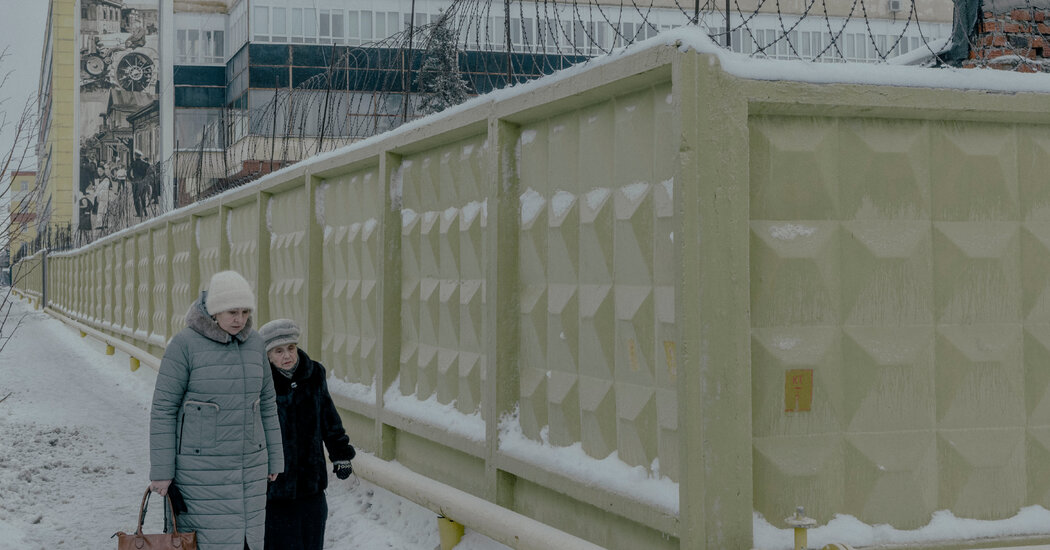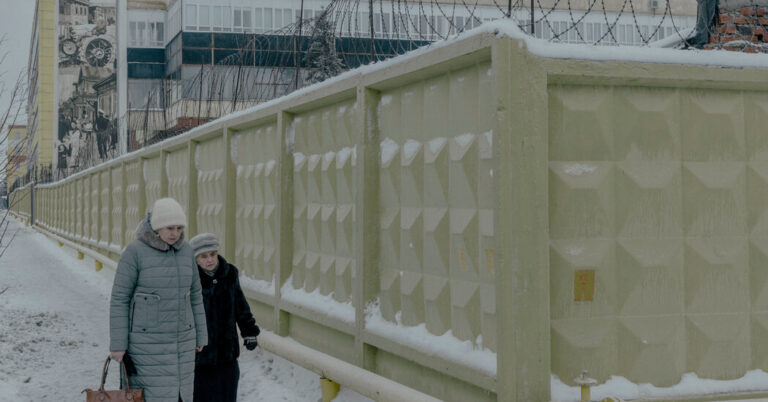Ukraine launched a large barrage of explosive drones at Russia on Friday, according to Ukrainian officials and the Russian military, in a barrage that set fire to an oil refinery and a pumping station and briefly closed several airports, including several serving Moscow.
The attack was the latest and one of the largest in Ukraine’s campaign to disrupt Russian military logistics and put pressure on the country’s economy by targeting the oil industry that is Moscow’s main source of revenue.
Ukraine’s fleet of drones, which resemble small airplanes and have a range of about 1,600 miles, have attacked Russian refineries and factories at least 17 times this year and dozens of times in 2024. Ukraine has increased drone production in last year and now regularly fires large bursts.
Posts on Russian social media showed fireballs erupting late Friday at a major refinery in Ryazan, a city about 110 miles southeast of Moscow.
The General Staff Headquarters of the Ukrainian Army released a statement saying that military and intelligence agencies coordinated on the drone attack and hit an oil refinery and an oil pumping station in Ryazan, causing fires. In the nearby Bryansk region, the statement said, Ukrainian drones hit an electrical components factory that produces chips for fighter planes and missiles, including two models of Russian intercontinental ballistic missiles, the Topol-M and the Bulava.
Overall, the Russian Defense Ministry said it shot down 121 Ukrainian drones over 11 Russian regions plus Crimea and Moscow on the night of Thursday to Friday.
Oil refineries, in particular, have been a frequent target for Ukraine. Russia has invested heavily in refineries over the past two decades, aiming to add value to its oil industry by exporting gasoline, diesel and aviation fuel in addition to crude oil. Many refineries are within range of Ukrainian drones. And because the sites themselves are flammable, small warheads can unleash infernos.
The attacks complement Western sanctions that have cut Russian oil revenues, although sales have remained robust enough to support the economy and finance the war effort. President Trump used a video address at the Davos economic forum on Thursday to insist on the importance of reducing Russia’s oil revenues to ending the war.
“If the price fell, the Russia-Ukraine war would end immediately,” he said, adding that he would ask Saudi Arabia and the Organization of the Petroleum Exporting Countries to take action to lower Russian oil prices.
The head of the Presidential Office of Ukraine, Andriy Yermak, also stressed the importance of lowering the price of oil. “A strict price cap and further reduction in the price of a barrel of Russian oil is the path to global security,” he said on his Telegram channel. “We fully support US President Donald Trump in his desire to reduce oil prices.”
Videos posted online by the Russians showed large fires raging in Ryazan. The head of the region, Pavel Malkov, announced an air strike on the city without specifying the targets. A military blogger named Rybar posted a list of other affected regions, citing local officials.
In online posts, residents of the city of Ryazan, which has a population of around 500,000, wrote critically of local authorities and said heat and electricity had been cut off. There was no immediate word on victims.
In Moscow, Mayor Sergei Sobyanin said in a post on his Telegram channel that the Russian air force shot down four drones headed towards the capital. According to Russia’s Federal Air Transport Agency, three Moscow airports and at least seven regional airports halted operations during the attack.
Russian drones also attacked Ukraine on the night of Thursday and Friday, killing three people at separate locations near Kiev, Mykola Kalashnyk, acting head of the Kiev regional government, said in a statement. A 10-story apartment building sustained significant damage.
In the early hours of Friday morning the Ukrainian Air Force also reported attempted drone strikes over central and western Ukraine, including one targeting the Ukrainian Air Force base in Starokonstantyniv, Khmelnytskyi Region, a frequent target for drones Russians. There was no information on damage or casualties at the air base.
Andrew E. Kramer and Nataliia Novosova contributed from Kiev and Ivan Nechepurenko from Tbilisi, Georgia.





